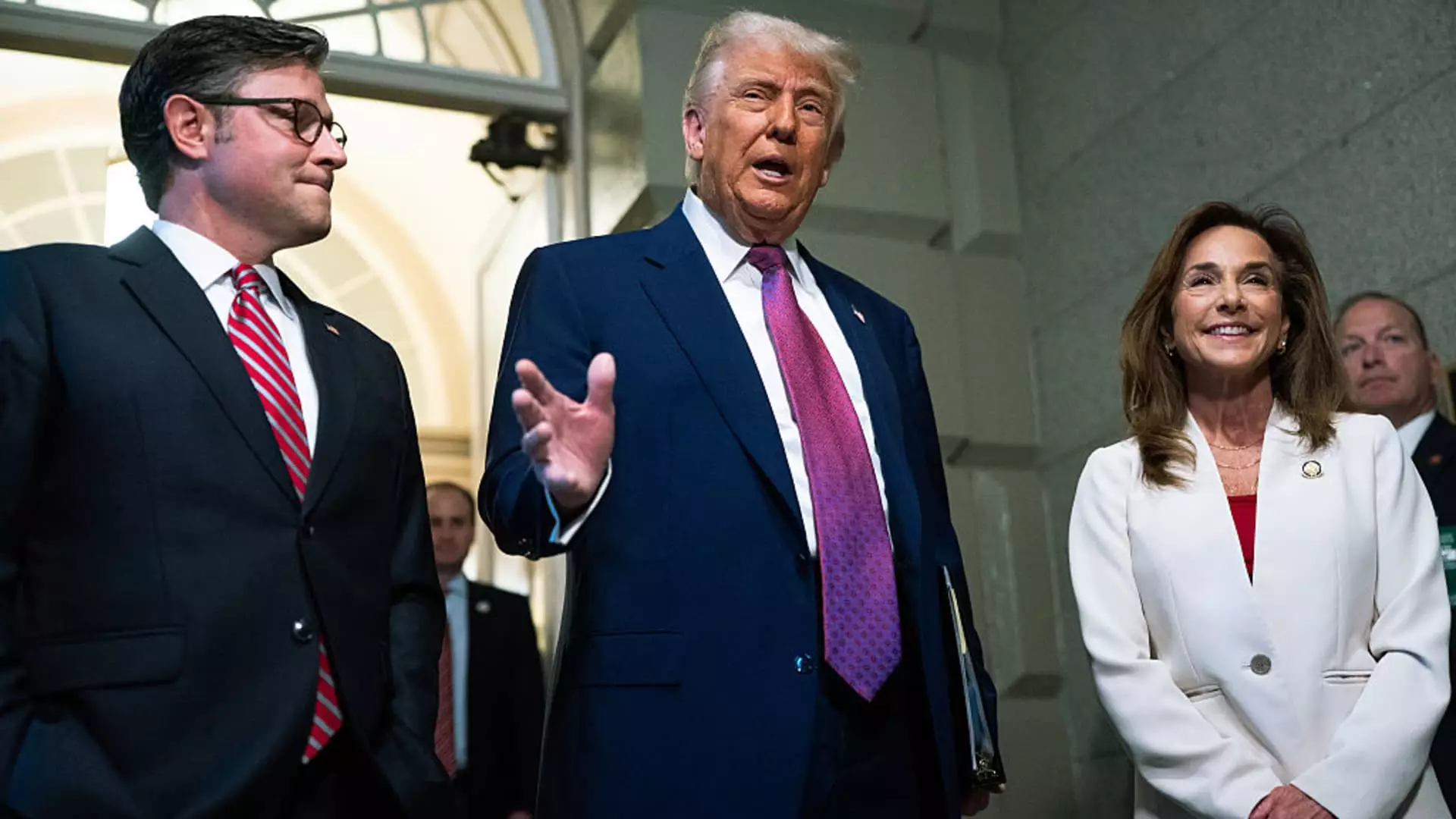The recent passage of President Donald Trump’s tax bill through the House of Representatives serves as a potent illustration of our current political landscape—one deeply divided and fraught with risks. With a razor-thin margin of 215-214, Republican leaders celebrated what they consider a monumental achievement in tax reform. However, this victory should be viewed with skepticism rather than applause. Unity among the majority party was shattered; nearly every Democrat opposed the bill, and even several Republicans expressed dissent or abstained. This fragmented support raises critical questions about the sustainability and consequences of such ambitious fiscal policies.
Legislation Crafted in Crisis
The rapid-fire debate, with the House Rules Committee working for 21 straight hours, speaks volumes about the hasty nature of the bill’s development. When legislation requires such intense scrutiny in a short period, it is often an indication that the content may not withstand comprehensive scrutiny or, worse, is fraught with issues that could have severe repercussions for Americans. Lawmakers are not just enacting a piece of legislation; they are undertaking a gamble with the economic future of millions.
Requiring a simple majority for passage in the Senate does grant the bill a path forward, but it invites further complications and revisions—complications that could morph into dire ramifications for various socioeconomic groups. The House legislation was constructed to appease competing factions, from hardline conservatives to moderate Republicans. It is a dangerously thin thread that holds such disparate interests together, risking the entire economic framework should substantial amendments prove contentious in the Senate.
Promises to the People or Political Ploys?
Responsibility is paramount when crafting tax legislation that impacts public welfare. The bill includes significant tax cuts, yet it pairs these cuts with shrinkages to the social safety net. The underlying message is not merely a promise of economic growth, but an ideology that prioritizes wealth accumulation over societal welfare. The proposed work requirements for Medicaid, for example, are a clear indication that those in low-income brackets may bear the brunt of these reforms while the affluent reap greater benefits—a classic case of Robin Hood in reverse. Furthermore, the Congressional Budget Office warns that the fiscal fallout will disproportionately affect households in the lowest income deciles while favoring the wealthiest.
This imbalance in resource allocation undermines the bedrock principles of social equity and fiscal responsibility that should govern tax legislation. Lawmakers might tout victory over the “big, beautiful” bill’s passage, yet the actual implications paint a grimmer picture: an escalation of wealth inequality and financial instability that ultimately threatens the nation’s socio-economic fabric.
Investor Concerns and Market Reactions
A keen indicator of the bill’s potential fallout is the immediate reaction of financial markets. The decrease in bond yields signifies growing anxiety among investors regarding the long-term consequences of these tax cuts, particularly with federal deficits projected to soar. For a country already burdened by substantial debt, this legislative push raises serious doubts about the sustainability of fiscal policies that benefit a selective few while endangering the financial future of the many.
Compounding these concerns is the reality of inflation and economic fluctuations, raising further doubts about whether tax cuts can indeed “kick-start” the economy as proponents claim. For many, this rhetoric feels more like wishful thinking than a viable economic strategy. The market’s skepticism—evidenced by falling stocks—serves as a stark reminder that investor confidence is inherently tied to fiscal responsibility and equitable economic growth.
The Ideological Divide: A Call for Responsible Governance
The push for tax reform championed by Republican leaders illustrates an ideological chasm in contemporary American politics. It is a deeply liberal idea to advocate for a balanced and fair economic policy that serves all citizens, not just a privileged few. While tax reform is necessary to keep pace with evolving economic realities, a misguided approach that prioritizes tax cuts for the wealthy at the expense of social safety nets is not the answer. True leadership demands a focus on fostering an inclusive economy, one that recognizes the dignity and potential of every American.
In challenging times that call for unity and thoughtful governance, the recent actions of the House Republicans reflect a stark departure from this ideal, prioritizing short-term political victories over long-term fiscal health and social equity. As they move the bill to the Senate, the legislative journey ahead ultimately rests not just on securing votes, but on demonstrating a commitment to the principles that underpin a fair and just society.

